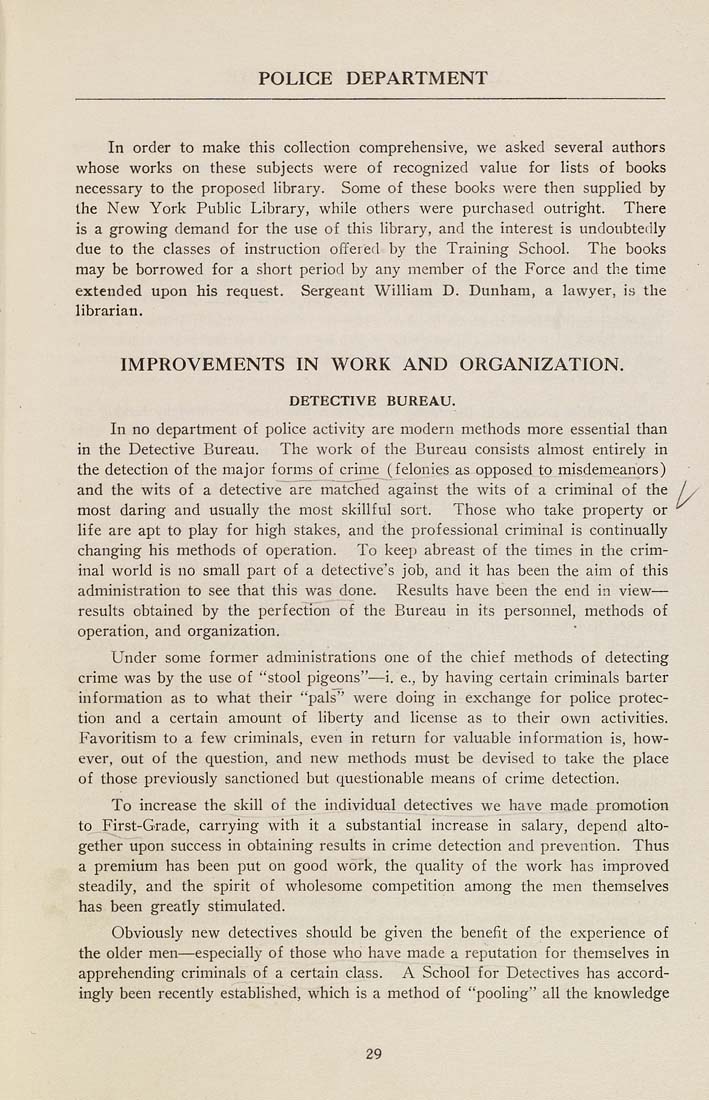POLICE DEPARTMENT
In order to make this collection comprehensive, we asked several authors
whose works on these subjects were of recognized value for lists of books
necessary to the proposed library. Some of these books were then supplied by
the New York Public Library, while others were purchased outright. There
is a growing demand for the use of this library, and the interest is undoubtedly
due to the classes of instruction offered by the Training School. The books
may be borrowed for a short period by any member of the Force and the time
extended upon his request. Sergeant William D. Dunham, a lawyer, is the
librarian.
IMPROVEMENTS IN WORK AND ORGANIZATION.
DETECTIVE BUREAU.
In no department of police activity are modern methods more essential than
in the Detective Bureau. The work of the Bureau consists almost entirely in
the detection of the major forms of crime (felonies as opposed to misdemeanors)
and the wits of a detective are matched against the wits of a criminal of the //
most daring and usually the most skillful sort. Those who take property or ^
life are apt to play for high stakes, and the professional criminal Is continually
changing his methods of operation. To keep abreast of the times in the crim¬
inal world is no small part of a detective's job, and It has been the aim of this
administration to see that this was done. Results have been the end in view—
results obtained by the perfection of the Bureau in its personnel, methods of
operation, and organization.
Under some former administrations one of the chief methods of detecting
crime was by the use of "stool pigeons"—i. e., by having certain criminals barter
Information as to what their "pals" were doing In exchange for police protec¬
tion and a certain amount of liberty and license as to their own activities.
Favoritism to a few criminals, even in return for valuable information is, how¬
ever, out of the question, and new methods must be devised to take the place
of those previously sanctioned but questionable means of crime detection.
To Increase the skill of the individual detectives we have made promotion
to First-Grade, carrying with It a substantial increase In salary, depend alto¬
gether upon success in obtaining results in crime detection and prevention. Thus
a premium has been put on good work, the quality of the work has Improved
steadily, and the spirit of wholesome competition among the men themselves
has been greatly stimulated.
Obviously new detectives should be given the benefit of the experience of
the older men—especially of those who have made a reputation for themselves in
apprehending criminals of a certain class. A School for Detectives has accord¬
ingly been recently established, which is a method of "pooling"' all the knowledge
29
|








